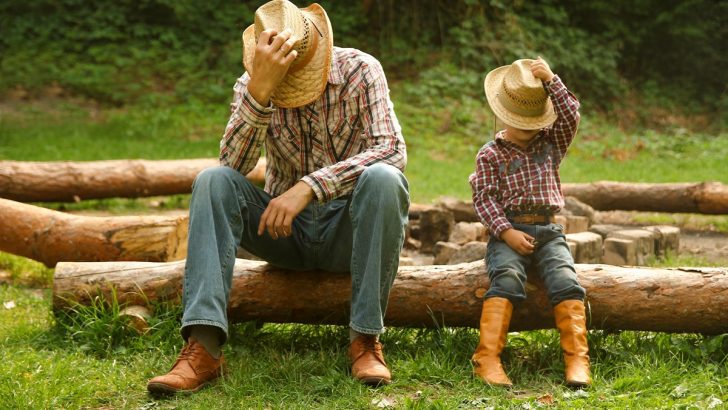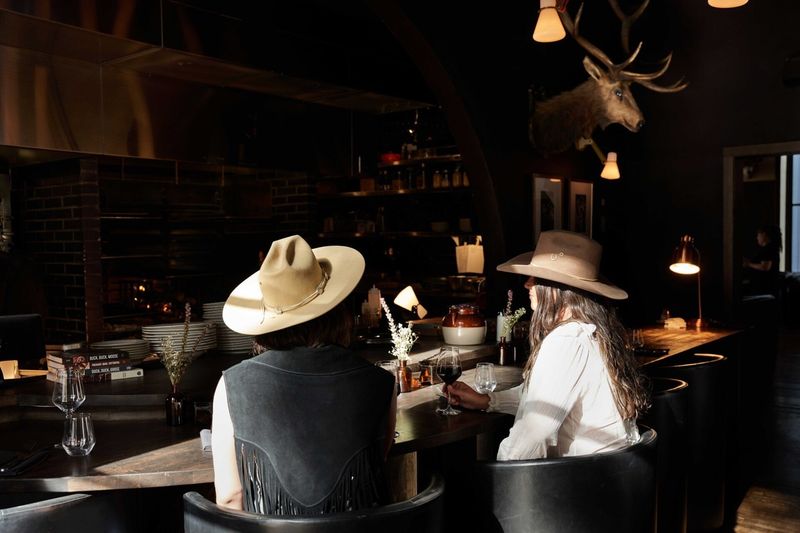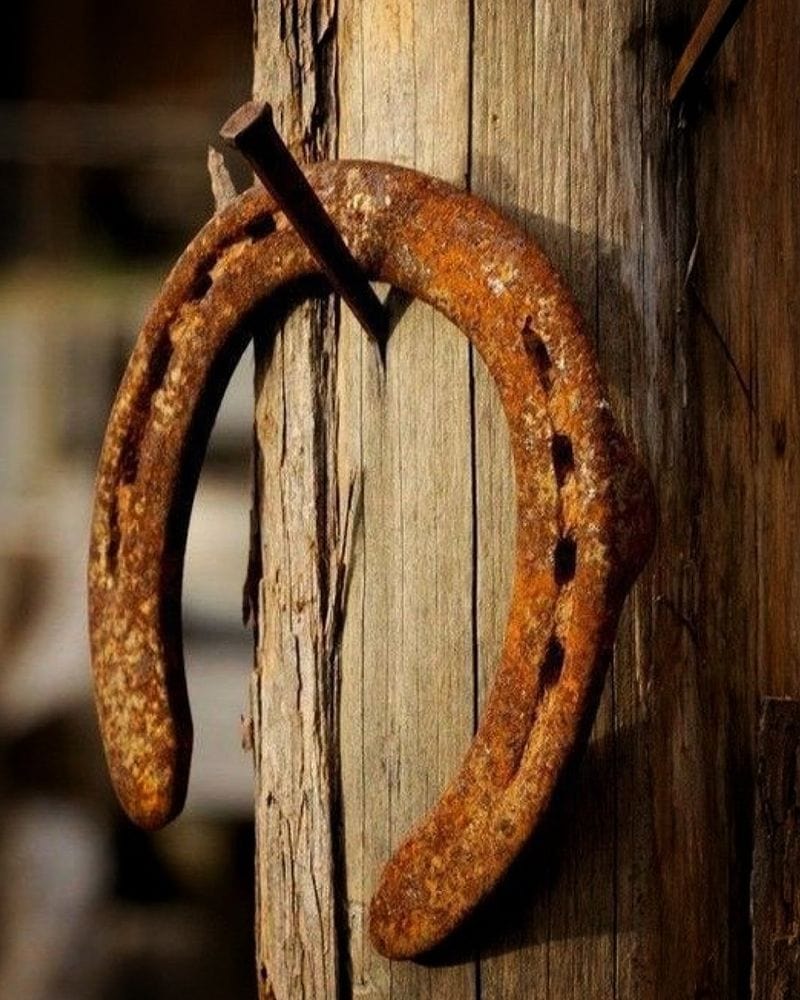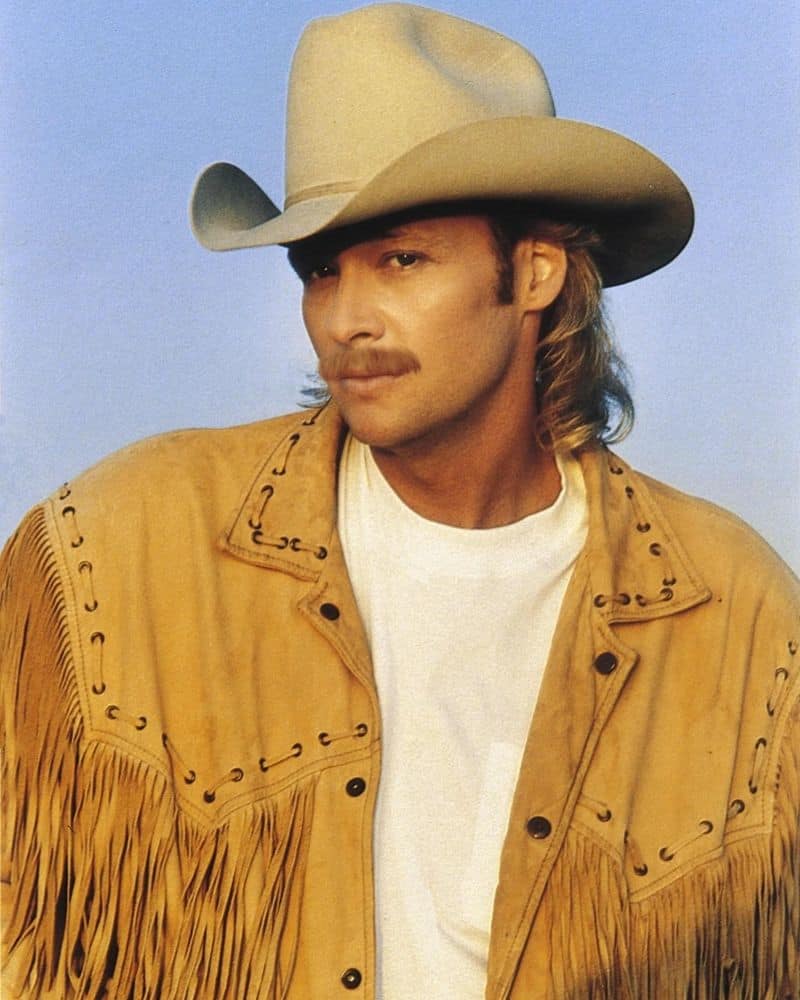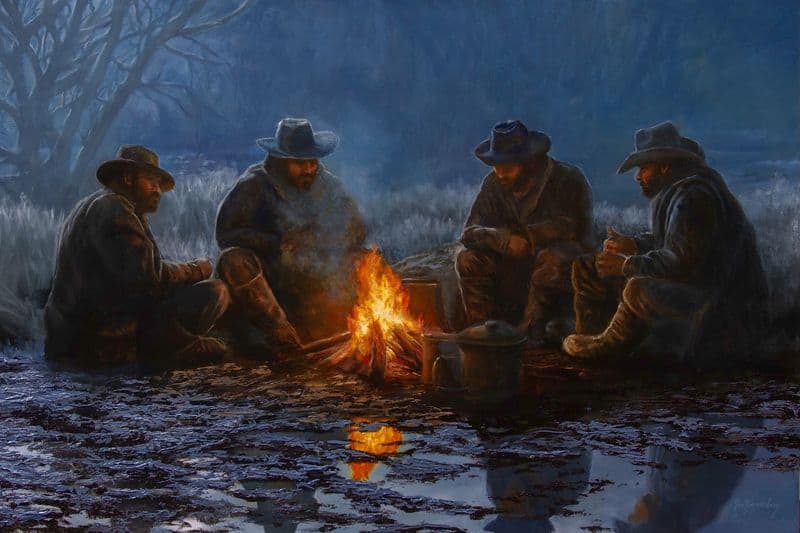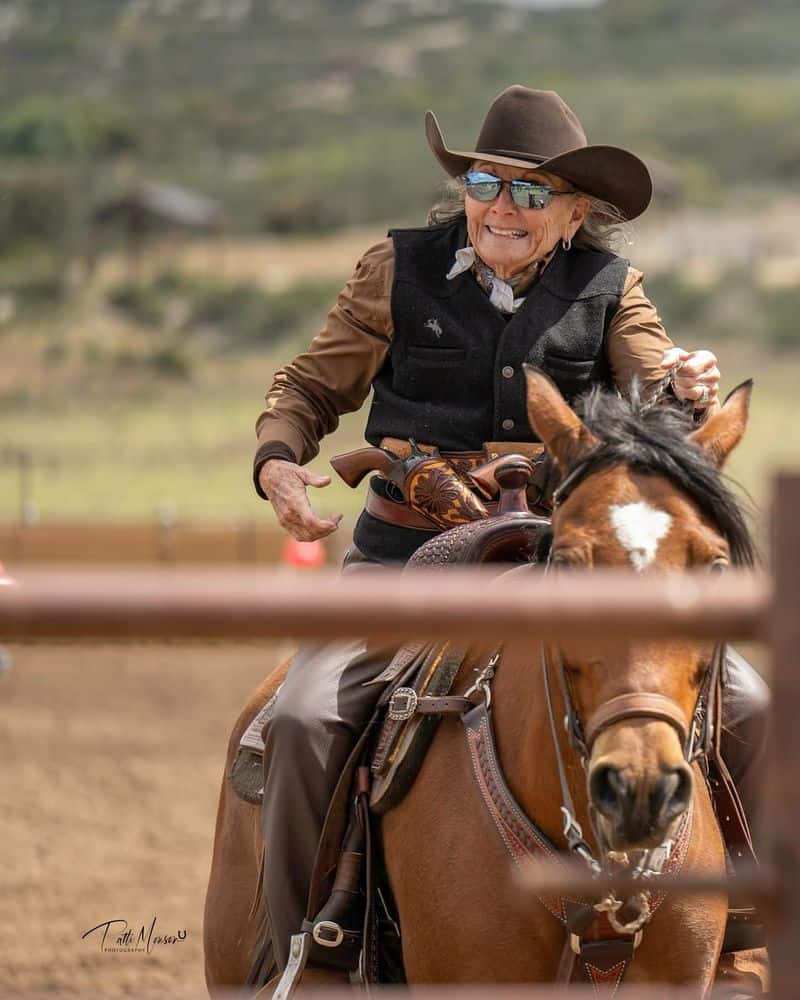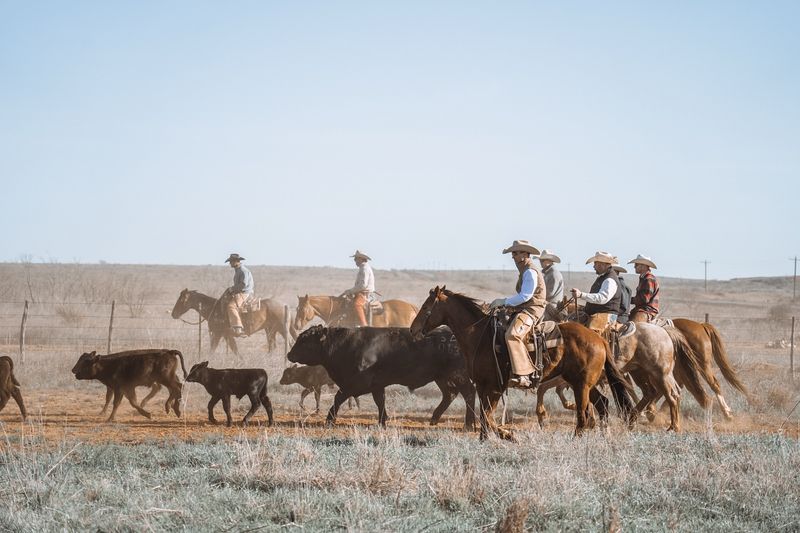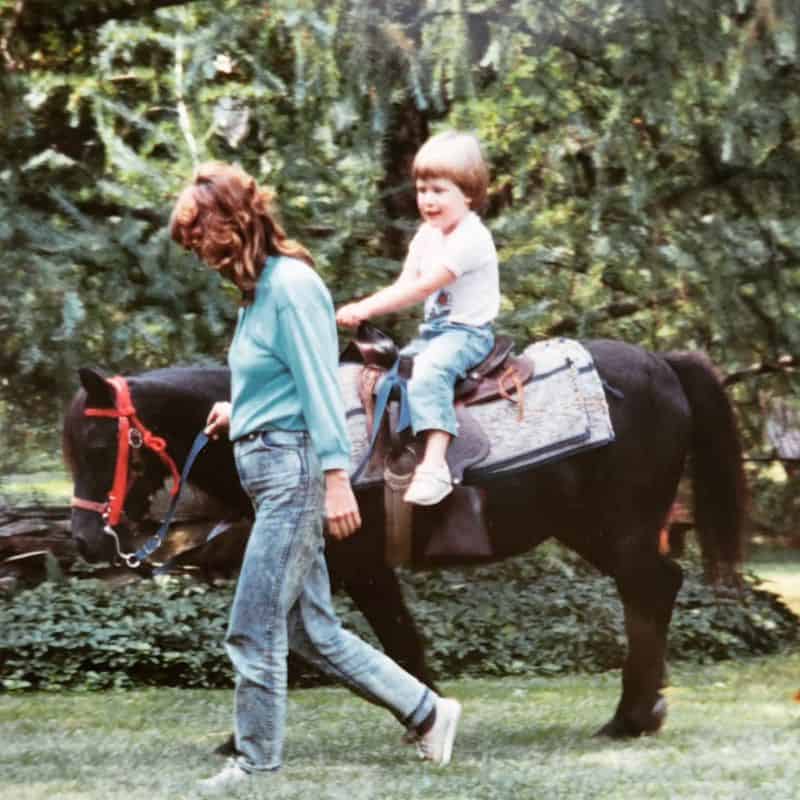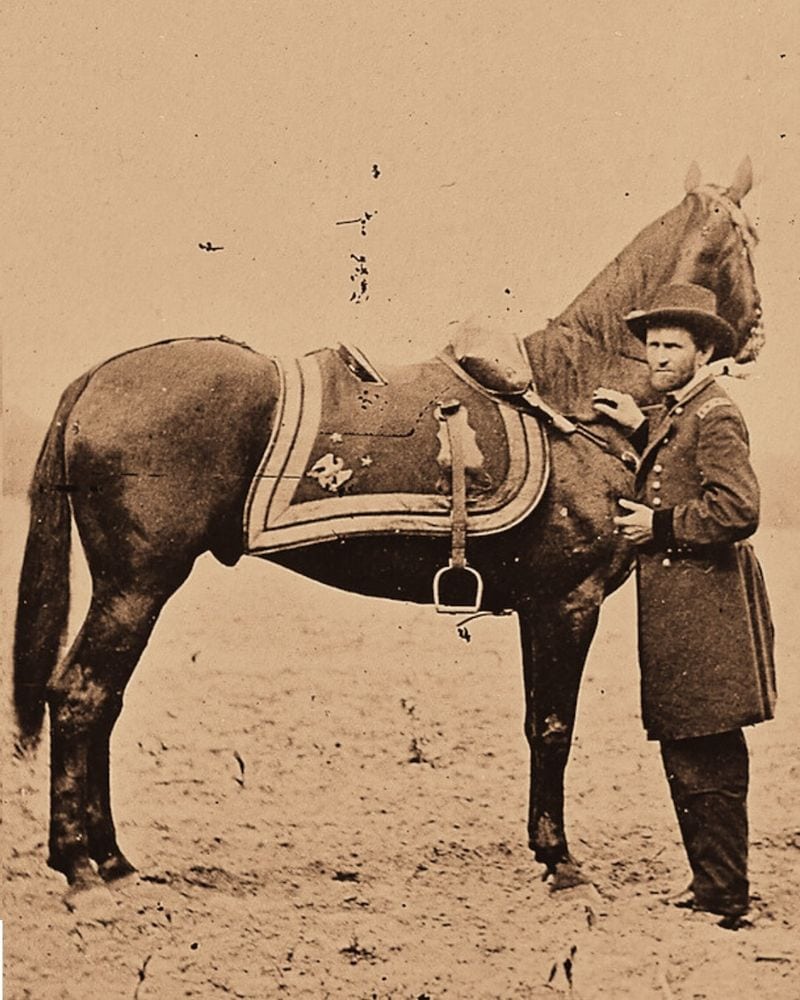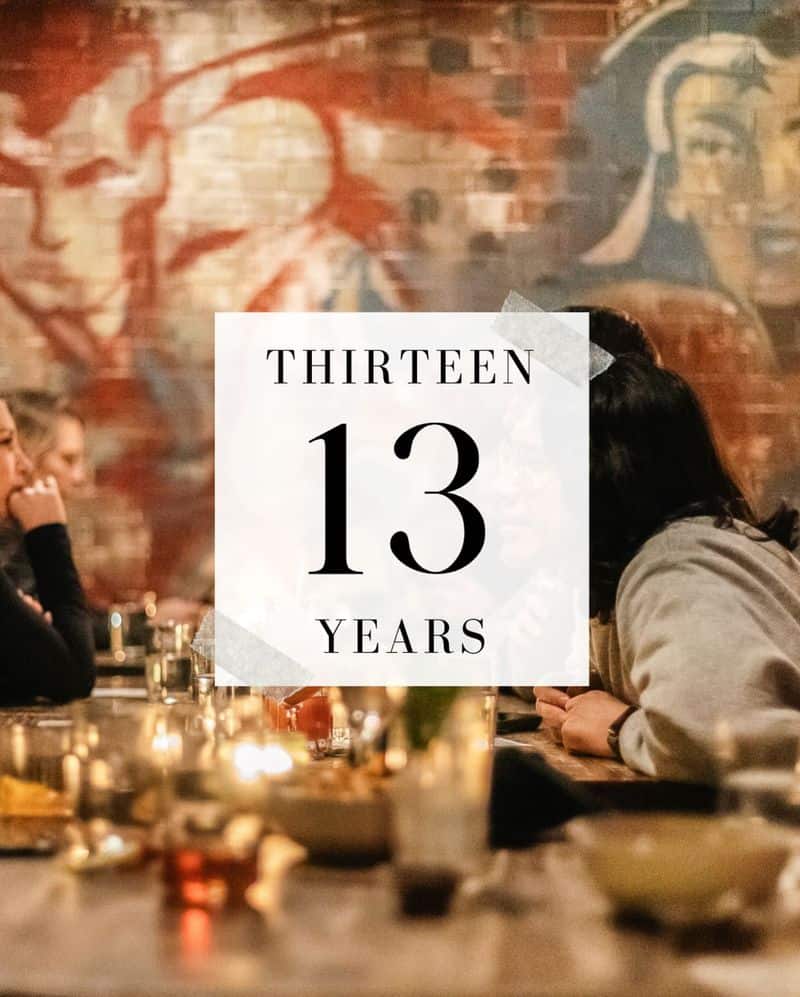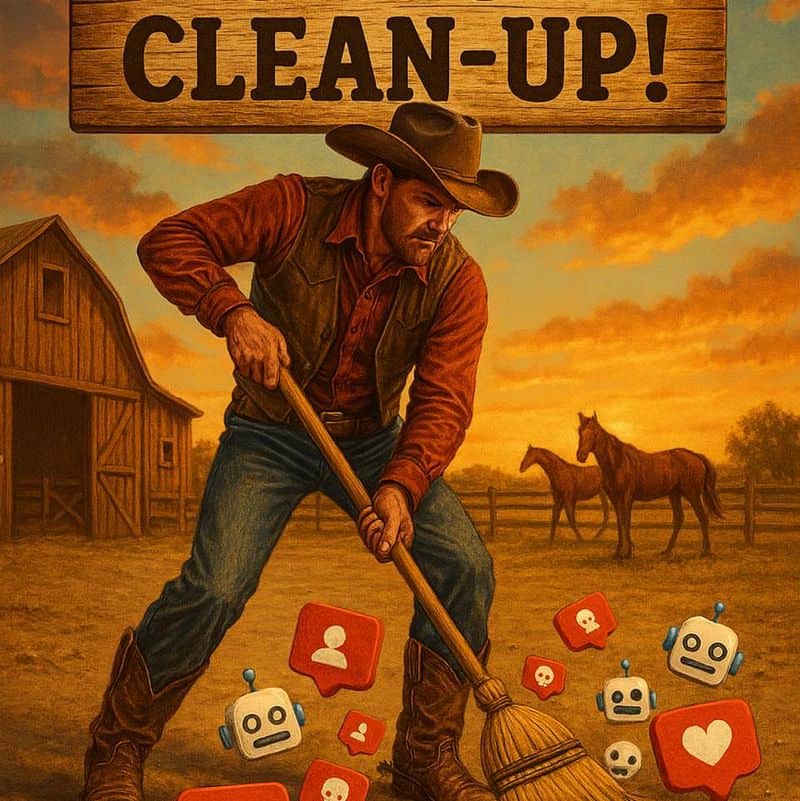Life on the open range was filled with danger and uncertainty. Cowboys, facing the harsh realities of the Wild West, developed unique superstitions to explain the unexplainable and hopefully bring some good fortune their way.
These beliefs weren’t just random notions – they became woven into the very fabric of cowboy culture, influencing daily decisions and shaping behaviors around the campfire and on cattle drives.
1. Hats Off The Bed
Placing a cowboy hat on a bed was considered terrible luck among the range riders. The practical origins made sense – hats collected dirt, sweat, and sometimes lice during long journeys across dusty plains.
Over time, this hygiene concern transformed into a deeply held superstition. Cowboys would rather toss their precious hat on the floor or hang it on a post than risk the misfortune that might follow from laying it on a bunk.
Some old-timers claimed this belief started because hats on beds resembled the tradition of covering a deceased person’s face with their hat during funeral preparations.
2. Lucky Horseshoes
Horseshoes nailed above doorways with the open end pointing upward served as cosmic luck catchers in cowboy culture. The iron material was believed to ward off evil spirits, while the U-shape trapped good fortune like a cup holds water.
Ranch houses, bunkhouses, and even some saloons proudly displayed these metal talismans. Finding a horseshoe on the trail was considered an especially powerful sign of upcoming good luck.
Cowboys often kept miniature horseshoes in their saddlebags or pockets as personal protection charms during particularly dangerous cattle drives or when venturing into unfamiliar territory.
3. Yellow Is Bad Luck
The color yellow struck fear into the hearts of superstitious cowboys. Wearing yellow to a rodeo or during a cattle drive was practically asking for trouble – perhaps a bucking bronco would throw you or a stampede might start.
This peculiar belief possibly originated from the association of yellow with cowardice or from yellow flowers that grew on graves. Some cowboys would refuse to ride horses with yellowish markings or would avoid purchasing yellow bandanas.
Rodeo performers were especially careful to avoid the unlucky hue, with many refusing to compete if they spotted too much yellow in the arena or on spectators.
4. Silent Nights
Whistling after sundown was strictly forbidden around cowboy campfires. The eerie sound cutting through darkness was believed to summon evil spirits or signal to lurking predators – both animal and human.
Many a young cowpoke received a swift elbow to the ribs if they absentmindedly started whistling while on night watch. The vast emptiness of the frontier made these supernatural concerns feel especially real under starlit skies.
Some trail bosses enforced this rule so strictly that repeat offenders would be assigned extra duties or even docked pay. The only acceptable nighttime sounds were quiet conversation, the occasional guitar, and the crackling of the campfire.
5. Left Side Mounting
A true cowboy always mounted his horse from the left side – no exceptions. This practice began with practical military origins but evolved into a powerful superstition that promised disaster for those who dared mount from the right.
Stories circulated of cowboys who ignored this rule and suffered broken bones, runaway horses, or failed cattle drives. The belief was so ingrained that horses themselves became accustomed to being mounted from the left and might spook if approached differently.
Even in desperate situations, a cowboy would hobble around a horse to reach its left side rather than risk the bad luck of mounting from the right.
6. Never Count The Herd
The seemingly simple act of counting cattle was fraught with supernatural danger for the superstitious cowboy. Precisely tallying the herd was believed to invite disaster – perhaps a sudden storm, predator attack, or even death in the ranks.
Instead of counting directly, cowboys developed clever workarounds. They might count legs and divide by four or estimate in groups rather than individually numbering each animal.
Trail bosses who needed accurate counts for business purposes would sometimes perform the counting in secret or hire someone specifically for this task who wasn’t bothered by the superstition. This belief persisted well into the early 20th century on many ranches.
7. Horse Breath Healing
Among the more unusual cowboy beliefs was the curative power of a horse’s breath. Parents would bring children suffering from whooping cough or respiratory ailments to breathe the exhalations of a horse, particularly a white horse.
This practice reflected the deep bond between cowboys and their equine partners. The warm breath of these trusted animals was considered to carry healing properties that could drive away illness and restore health to the afflicted.
Some cowboys extended this belief further, claiming that sleeping near their horses would prevent nightmares and ensure restful sleep. The practice demonstrates how intertwined the lives of cowboys and horses truly were.
8. Sacred Horse Names
Changing a horse’s name was considered a serious taboo that could bring misfortune to both rider and mount. Cowboys believed that a horse’s name was connected to its spirit and personality – altering it might confuse the animal’s soul or even invite malevolent forces.
When purchasing horses with undesirable names, cowboys would often invent elaborate nicknames rather than formally rename them. This superstition was particularly strong among cowboys who spent long, lonely months with their horses as their primary companions.
Some believed that a renamed horse would become untrustworthy or develop dangerous habits. The bond between cowboy and horse was sacred, and respecting the animal’s original identity was part of that relationship.
9. Fearing Number Thirteen
The number thirteen carried powerful negative associations throughout cowboy culture. Trail drives wouldn’t begin on the 13th of any month, and cowboys would avoid forming groups of thirteen riders whenever possible.
Bunkhouses rarely had bed number thirteen, and some ranches skipped this number when branding cattle. The combination of Friday the 13th was considered especially dangerous – a day when sensible cowboys would avoid risky activities like breaking wild horses or crossing treacherous terrain.
Some historical accounts mention cattle companies that would hire a temporary 14th man just to avoid having thirteen cowboys on an important drive. This widespread fear crossed cultural and regional boundaries throughout the American West.
10. Manure Brings Fortune
While most might recoil at stepping in manure, cowboys considered it a stroke of good luck! This peculiar belief likely stemmed from the connection between abundant livestock and prosperity in ranching communities.
Cowboys who accidentally stepped in manure before an important event like a rodeo competition or job interview would often leave it on their boots intentionally. The more manure encountered, the greater the expected fortune.
Some particularly superstitious cowboys would deliberately seek out fresh manure before important undertakings. This belief represents how cowboy superstitions often transformed everyday annoyances of ranch life into positive omens, helping maintain optimism during challenging times.

